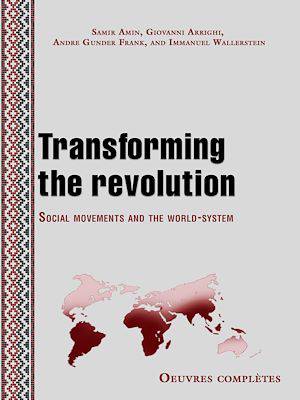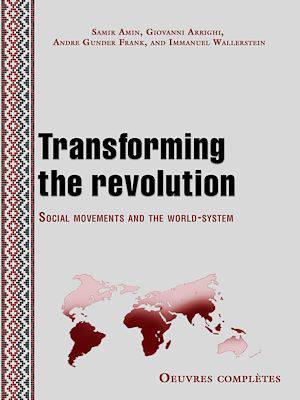
- Retrait gratuit dans votre magasin Club
- 7.000.000 titres dans notre catalogue
- Payer en toute sécurité
- Toujours un magasin près de chez vous
- Retrait gratuit dans votre magasin Club
- 7.000.0000 titres dans notre catalogue
- Payer en toute sécurité
- Toujours un magasin près de chez vous
Transforming the revolution EBOOK
Social movements and the world-system
Samir Amin, Giovanni Arrighi, Immanuel WALLERSTEIN, Andre Gunder FrankDescription
In this volume the authors engage in a provocative discussion of the history and contemporary dilemmas facing the movements that are variously described as antisystemic, social or popular. The authors believe that these movements, which have for the past 150 years protested and organized against the multiple injustices of the existing system, are the key locus of social transformation.
Immanuel Wallerstein begins by presenting a historical overview of the range and interrelations what he calls antisystemic movements. tracing their development out of the French Revolution.
Giovanni Arrighi focuses on those movements that have been based in the working class, while Samir Amin concentrates on the movements particularly in the periphery, that have placed « national liberation » at or near the top of their agenda.
Finally, Andre Gunder Frank and Marta Fuentes look at the « new social movements » (particularly the women's, peace, and ecology movements), which they argue are not new. While the authors' points of agreement are many, so are their points of divergence. In the final chapter, they outline both, and discuss the ways in which these movements are transforming the revolutionary process itself.
Spécifications
Parties prenantes
- Auteur(s) :
- Editeur:
Contenu
- Nombre de pages :
- 487
- Langue:
- Français
Caractéristiques
- EAN:
- 9782379182945
- Date de parution :
- 13-04-20
- Format:
- Ebook
- Protection digitale:
- Digital watermarking
- Format numérique:
- ePub

Les avis
Nous publions uniquement les avis qui respectent les conditions requises. Consultez nos conditions pour les avis.






